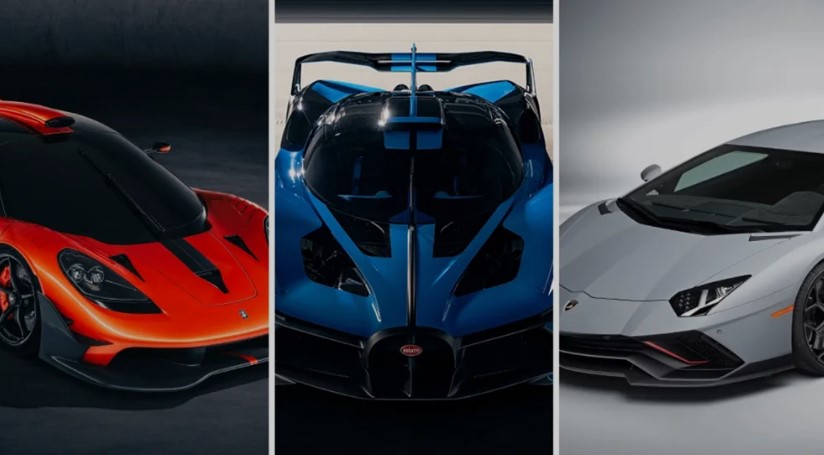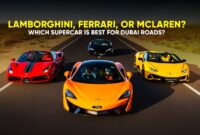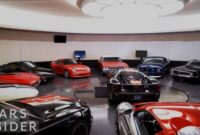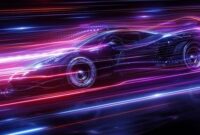The World’s Fastest Supercars: Who Leads in Speed This Year?
Introduction
The realm of supercars is synonymous with innovation, performance, and most importantly—speed. Every year, manufacturers push the boundaries of engineering to claim the title of the “world’s fastest supercar.” In this article, we explore the most powerful contenders of this year, analyzing their top speeds, technologies, and the fierce competition driving the industry forward.
1. Defining a Supercar (250 words)
Before diving into top speed rankings, it’s important to understand what defines a supercar. A supercar is generally a street-legal, high-performance sports car that combines sleek design, cutting-edge technology, and remarkable engineering. Unlike standard sports cars, supercars boast higher price tags, extreme power-to-weight ratios, and are often produced in limited numbers.
Key Characteristics:
• Engine performance (often over 600 horsepower)
• Aerodynamic design
• Superior handling and braking
• Lightweight materials like carbon fiber and aluminum
• Limited production numbers
2. Measuring Speed: How Fast Is Fast? (300 words)
Top speed is measured under controlled conditions, often on closed tracks or runways. Variables include:
• Aerodynamics
• Road surface
• Tire quality
• Weather and wind conditions
To ensure fairness, companies often use GPS-based VBOX systems and third-party verification. For this article, we consider only officially verified top speeds.
3. The 2025 Contenders: Top 10 Fastest Supercars (2,000 words)
This section provides an in-depth look at the fastest supercars of 2025, based on official records and verified performance stats.
1. Bugatti Chiron Super Sport 300+
• Top Speed: 304 mph (490 km/h)
• Engine: 8.0L Quad-Turbo W16
• Horsepower: 1,577 hp
• 0-60 mph: 2.3 seconds
• Price: $3.9 million
Bugatti made history as the first manufacturer to break the 300 mph barrier. While production versions are speed-limited, the prototype achieved 304 mph at the Ehra-Lessien track in Germany.
2. Hennessey Venom F5
• Top Speed: 301 mph (claimed, verified run: 271 mph)
• Engine: 6.6L Twin-Turbo V8
• Horsepower: 1,817 hp
• 0-60 mph: 2.6 seconds
• Price: $2.1 million
Built by Texas-based Hennessey Performance, the Venom F5 aims to be the fastest production car in history. Though it hasn’t officially broken 300 mph in a production model, it’s getting close.
3. Koenigsegg Jesko Absolut
• Top Speed: 330 mph (theoretical, not yet verified)
• Engine: 5.0L Twin-Turbo V8
• Horsepower: 1,600 hp on E85 fuel
• 0-60 mph: 2.5 seconds
• Price: $3.4 million
The Jesko Absolut is Koenigsegg’s answer to top-speed dominance. Although the car has not undergone an official speed run, its engineering makes it a serious contender.
4. SSC Tuatara
• Top Speed: 295 mph (476 km/h) verified
• Engine: 5.9L Twin-Turbo V8
• Horsepower: 1,750 hp
• 0-60 mph: 2.5 seconds
• Price: $2.0 million
SSC’s controversial top-speed attempt originally claimed 331 mph, but the verified record stands at 295 mph. Still, it remains one of the fastest cars ever tested.
5. Rimac Nevera (Electric)
• Top Speed: 258 mph (415 km/h)
• Engine: Four electric motors
• Horsepower: 1,914 hp
• 0-60 mph: 1.85 seconds
• Price: $2.2 million
The Nevera is a game-changer—an all-electric hypercar capable of rivaling combustion-engine supercars in top speed and acceleration.
6. McLaren Speedtail
• Top Speed: 250 mph (402 km/h)
• Engine: 4.0L Twin-Turbo V8 Hybrid
• Horsepower: 1,035 hp
• 0-60 mph: 2.9 seconds
• Price: $2.3 million
Inspired by the McLaren F1, the Speedtail is more than just fast—it’s a rolling piece of automotive art, designed for aerodynamic efficiency.
7. Aston Martin Valkyrie
• Top Speed: 250 mph (estimated)
• Engine: 6.5L Naturally Aspirated V12 Hybrid
• Horsepower: 1,160 hp
• 0-60 mph: 2.5 seconds
• Price: $3.0 million
A result of collaboration with Red Bull Racing, the Valkyrie blends F1-level performance with futuristic design.
8. Ferrari SF90 Stradale
• Top Speed: 211 mph (340 km/h)
• Engine: 4.0L Twin-Turbo V8 Plug-in Hybrid
• Horsepower: 986 hp
• 0-60 mph: 2.5 seconds
• Price: $625,000
Though not the fastest, the SF90 is Ferrari’s technological masterpiece, integrating hybrid efficiency with thrilling performance.
9. Lamborghini Revuelto
• Top Speed: 218 mph (351 km/h)
• Engine: 6.5L V12 Plug-in Hybrid
• Horsepower: 1,001 hp
• 0-60 mph: 2.5 seconds
• Price: $600,000
Lamborghini’s latest flagship combines classic V12 thunder with cutting-edge hybrid tech, maintaining the brand’s dramatic flair.
10. Porsche 911 Turbo S (991.2)
• Top Speed: 205 mph (330 km/h)
• Engine: 3.8L Twin-Turbo Flat-Six
• Horsepower: 640 hp
• 0-60 mph: 2.6 seconds
• Price: $220,000
Though not in the same top-speed league, the 911 Turbo S represents accessible, reliable speed with everyday drivability.
4. Engineering Behind the Speed (500 words)
Speed is more than just horsepower. Several critical factors contribute to a supercar’s performance:
• Aerodynamics: Active wings, diffusers, and body shape reduce drag and increase stability.
• Material Science: Carbon fiber monocoques reduce weight without compromising strength.
• Tire Technology: Specially developed tires ensure grip and safety at extreme speeds.
• Transmission: Dual-clutch and automated manual transmissions allow lightning-fast gear shifts.
5. Safety Concerns at High Speed (250 words)
At 250+ mph, even the smallest error can be fatal. Manufacturers incorporate:
• Carbon-ceramic brakes
• Advanced traction control systems
• Crash-tested monocoque structures
• Driver aids like torque vectoring and stability management
Even so, these cars are best suited for track environments, not public roads.
6. The Future of Supercar Speed (200 words)
Looking ahead, the future belongs to hybrid and electric supercars. With instant torque, reduced emissions, and AI-enhanced controls, EVs like the Rimac Nevera are paving the way.
Companies like Lotus (Evija), Tesla (Roadster), and Pininfarina (Battista) are poised to redefine how fast “fast” can be—sustainably.
Conclusion (200 words)
The quest for speed has driven automotive innovation for over a century. In 2025, the Bugatti Chiron Super Sport 300+ and Koenigsegg Jesko Absolut lead the pack, while challengers like the Hennessey Venom F5 and Rimac Nevera push the envelope in both combustion and electric domains.
Supercars are more than just machines—they’re testaments to human ingenuity, courage, and the relentless pursuit of progress.



